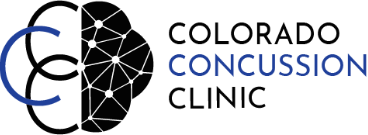If you've experienced a concussion and are dealing with ongoing vision problems, a thorough neuro-optometry evaluation is essential. Unlike a standard eye exam, which primarily checks for eye health and visual acuity, a neuro-optometry evaluation goes much deeper, addressing the complex systems that control how we process visual information.
While a typical eye doctor will assess the health of your eyes and determine if you need glasses, a neuro-optometrist will look beyond these factors. Glasses are important, but they can only address part of the issue, as they may not resolve other visual symptoms caused by a concussion. A skilled neuro-optometrist will evaluate the following visual systems to determine the source of your symptoms:
1. The Focusing (Accommodating) System
The focusing system allows your eyes to adjust their power when looking at objects at different distances. For example, when you focus on something close up, your eyes need to increase their focusing power. If this system is impaired (which is common after a concussion), you may experience blurry vision, especially with near tasks like reading. Research shows that focusing issues are one of the most frequently affected systems following a concussion.
It's important to note that focusing difficulties can sometimes look similar to issues with the vergence system, so it’s critical that a neuro-optometrist differentiates between the two, as treatments for each system are different.
2. The Vergence System
The vergence system controls how your eyes work together to focus on objects at varying distances. This system helps your eyes converge (or cross) for near vision and diverge for distance vision. Proper vergence is crucial for depth perception, efficient reading, and preventing double vision.
If your vergence system is disrupted after a concussion, you may experience difficulty with eye coordination, which can affect your ability to judge distances or cause visual discomfort with visual tasks like driving, reading, and computer work.
3. The Tracking System
The tracking system enables your eyes to follow moving objects or smoothly shift from one point to another (like when you're reading across a line of text). This system is essential for activities such as reading, driving, or following a conversation. If your tracking system is compromised, you may find it hard to keep your place while reading, or experience blurry vision when moving your eyes across a page.
How These Systems Relate to Reading and Vision
When thinking about these systems in the context of reading, each plays a key role:
The focusing system ensures the words are clear and crisp.
The vergence system ensures the words appear as single, clear characters (rather than double vision).
The tracking system allows for smooth movement from one word to the next without losing your place.
If any of these systems are not functioning properly after a concussion, you might experience a range of symptoms, including blurry or double vision, difficulty focusing, or trouble reading for extended periods. A neuro-optometrist can identify which system is malfunctioning and develop a tailored treatment plan to help you recover.
A comprehensive neuro-optometry evaluation is vital for anyone experiencing persistent vision problems after a concussion. It goes beyond just checking your vision—it examines how your brain processes and coordinates visual information, which can be significantly impacted by head injuries. If you’re struggling with visual symptoms after a concussion, it’s worth seeking out a skilled neuro-optometrist who can assess all the relevant visual systems and guide you through the recovery process.

